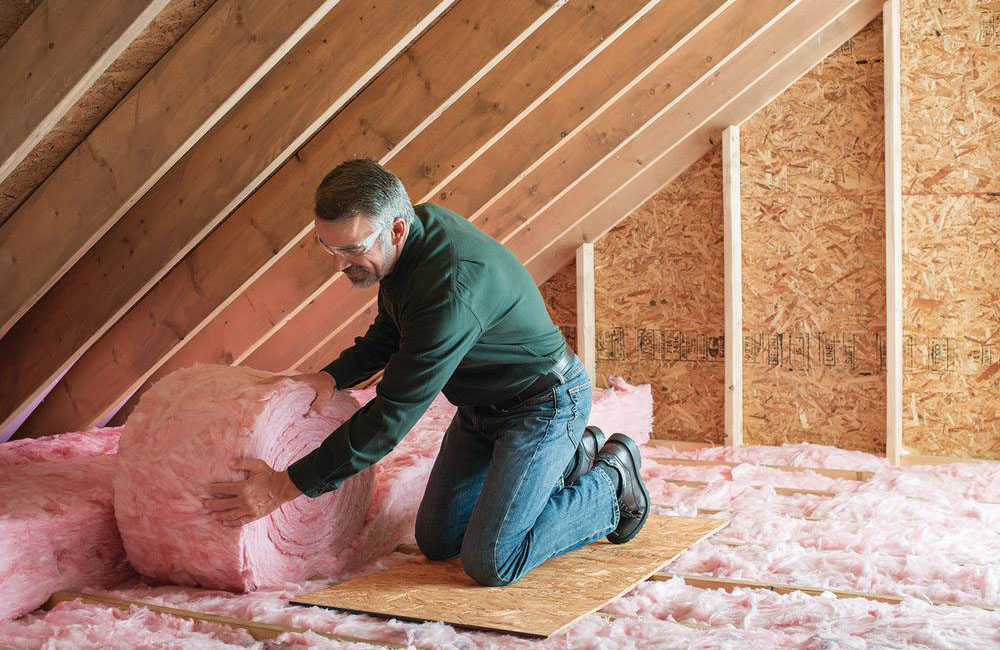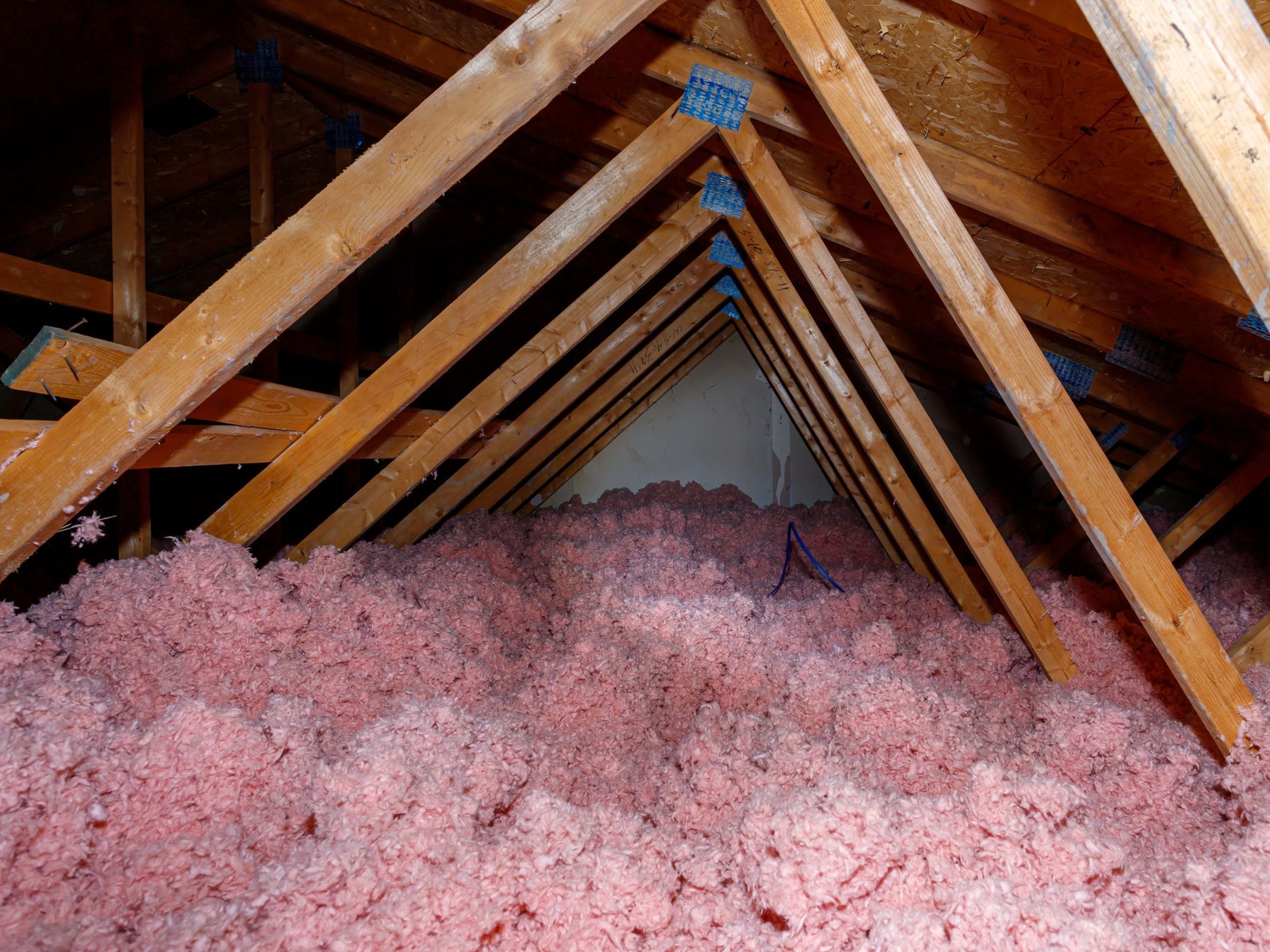Leading Benefits of Upgrading Attic Insulation DFW for Your Home Convenience
Leading Benefits of Upgrading Attic Insulation DFW for Your Home Convenience
Blog Article
Discover the Different Kinds Of Attic Insulation and Their Special Advantages for Your Home's Energy Performance

Fiberglass Insulation
Fiberglass insulation is just one of the most generally utilized materials for attic insulation because of its exceptional thermal performance and cost-effectiveness. Composed of tiny glass fibers, this material properly catches air, creating an insulating barrier that helps preserve regular interior temperature levels. Its high R-value per inch makes it specifically effective at standing up to heat transfer, which is critical for energy preservation in homes.
Setup of fiberglass insulation is reasonably uncomplicated, often available in batts or loose-fill kinds, fitting numerous attic setups. Furthermore, it is resistant and non-combustible to moisture, lowering the threat of mold and mildew growth. This toughness adds to its durability, making fiberglass a sensible long-term investment for homeowners.
Additionally, fiberglass insulation is often made from recycled materials, which improves its eco-friendliness. The product can additionally add to soundproofing, minimizing noise transfer in between spaces. While it is essential to put on safety equipment throughout installment to prevent inflammation from the fibers, the overall benefits of fiberglass insulation, including energy savings and ecological factors to consider, make it a preferred selection for enhancing attic room efficiency and promoting a comfortable living environment.
Spray Foam Insulation
Spray foam insulation is a highly effective option for attic room insulation, understood for its superior air securing and thermal efficiency. This ingenious insulation product is composed of a mix of isocyanate and polyol resin, which, when incorporated, increases rapidly to load spaces and tooth cavities in the attic room. Its ability to comply with various surface areas makes certain a continual obstacle against air leaks, considerably decreasing warmth loss throughout chillier months and warm gain throughout warmer periods.
One of the key advantages of spray foam insulation is its high R-value per inch, which means it offers excellent thermal resistance in a reasonably slim application. This is specifically helpful in attics where room is commonly minimal. In addition, spray foam can help lessen dampness accumulation, decreasing the danger of mold and mildew and mold development, which can be destructive to both the framework and indoor air top quality.
While the initial price of spray foam insulation might be greater than traditional choices, its long-lasting power financial savings, paired with boosted convenience and boosted home worth, make it a beneficial financial investment for house owners seeking improved energy effectiveness. Attic Insulation DFW. Overall, spray foam insulation sticks out as an efficient remedy for optimizing attic insulation
Cellulose Insulation

Cellulose insulation is a preferred selection for attic insulation, mainly made up of recycled paper products treated with fire retardants. This eco-friendly alternative is understood for its exceptional thermal performance, efficiently minimizing warmth transfer in both summer and winter season. The dense structure of cellulose enables it to load spaces and spaces in attic rooms, giving a seamless barrier versus air leakages.
One of the substantial advantages of cellulose insulation is its capacity to resist mold and parasites, owing to the fire retardant treatments utilized during manufacturing. In addition, it flaunts a high R-value per inch, which converts into superior energy effectiveness. Home owners can anticipate reduced cooling and heating expenses as a result of enhanced insulation.
Installation is generally accomplished via blowing loose cellulose into the desired area, enabling for a fast and effective process. This approach also decreases disruption to the existing framework. Cellulose insulation has a relatively reduced environmental impact, as its production procedure uses pop over to this site recycled materials, contributing to lasting structure techniques.
Rock Wool Insulation
Among the different alternatives for attic insulation, rock wool, also referred to as mineral woollen, attracts attention because of its remarkable thermal and acoustic performance. Made from natural or recycled materials, rock woollen is created by thawing rock and rotating it right into fibers, resulting in an item that supplies excellent insulation residential or commercial properties.
Among the significant benefits of rock woollen insulation is its high R-value, which suggests its effectiveness in withstanding warmth flow. This characteristic not just improves energy efficiency but likewise adds to preserving a comfy indoor temperature level year-round. In addition, rock wool is inherently fire-resistant, making it a safer choice for homes as it can stand up to high temperature levels without melting or launching poisonous fumes.
Moreover, rock woollen insulation succeeds in soundproofing capacities, effectively lowering sound transmission between rooms and from outdoors sources. On the whole, rock woollen insulation supplies an extensive remedy for enhancing power effectiveness, safety, and convenience in property setups.
Glowing Barrier Insulation
Radiant barrier insulation functions as an efficient service for lessening warmth transfer in attic rooms, particularly in warmer climates. This type of insulation works by reflecting convected heat away from living rooms, thereby reducing the quantity of warm that goes into a home during warm weather condition - Attic Insulation DFW. Commonly made up of a very reflective product, such as light weight aluminum foil, radiant barriers are set up in attics, facing the roofing system, where they can intercept incoming heat from the sun
The primary advantage of radiant obstacle insulation is its capacity to lower cooling prices. By reflecting warmth instead than absorbing it, radiant barriers can aid maintain a more stable interior temperature level, lowering the workload on a/c systems. This efficiency equates into reduced energy expenses and raised convenience for property owners.
Along with power financial savings, radiant barriers can also contribute to improved interior air top quality. By minimizing warm buildup, they assist minimize moisture levels, which can protect against mold development and improve overall air flow. When installed properly, radiant obstacle insulation can be an important addition to any kind of energy-efficient home, making it a deserving factor to consider for homeowners wanting to improve their attic room insulation strategy.
Final Thought
Finally, recognizing the different kinds of attic insulation-- fiberglass, spray foam, cellulose, rock wool, and glowing barriers-- makes it possible for house owners to make informed choices pertaining to energy performance. Each insulation type presents one-of-a-kind benefits, such as remarkable thermal resistance, wetness navigate to this site administration, and audio attenuation. By choosing the appropriate insulation material, considerable decreases in energy expenses can be attained, together with improvements in indoor convenience. Inevitably, the best selection adds to a more sustainable living environment and advertises overall energy go to the website preservation.
.jpg)
In verdict, comprehending the different types of attic insulation-- fiberglass, spray foam, cellulose, rock wool, and radiant obstacles-- makes it possible for house owners to make educated decisions concerning power effectiveness.
Report this page